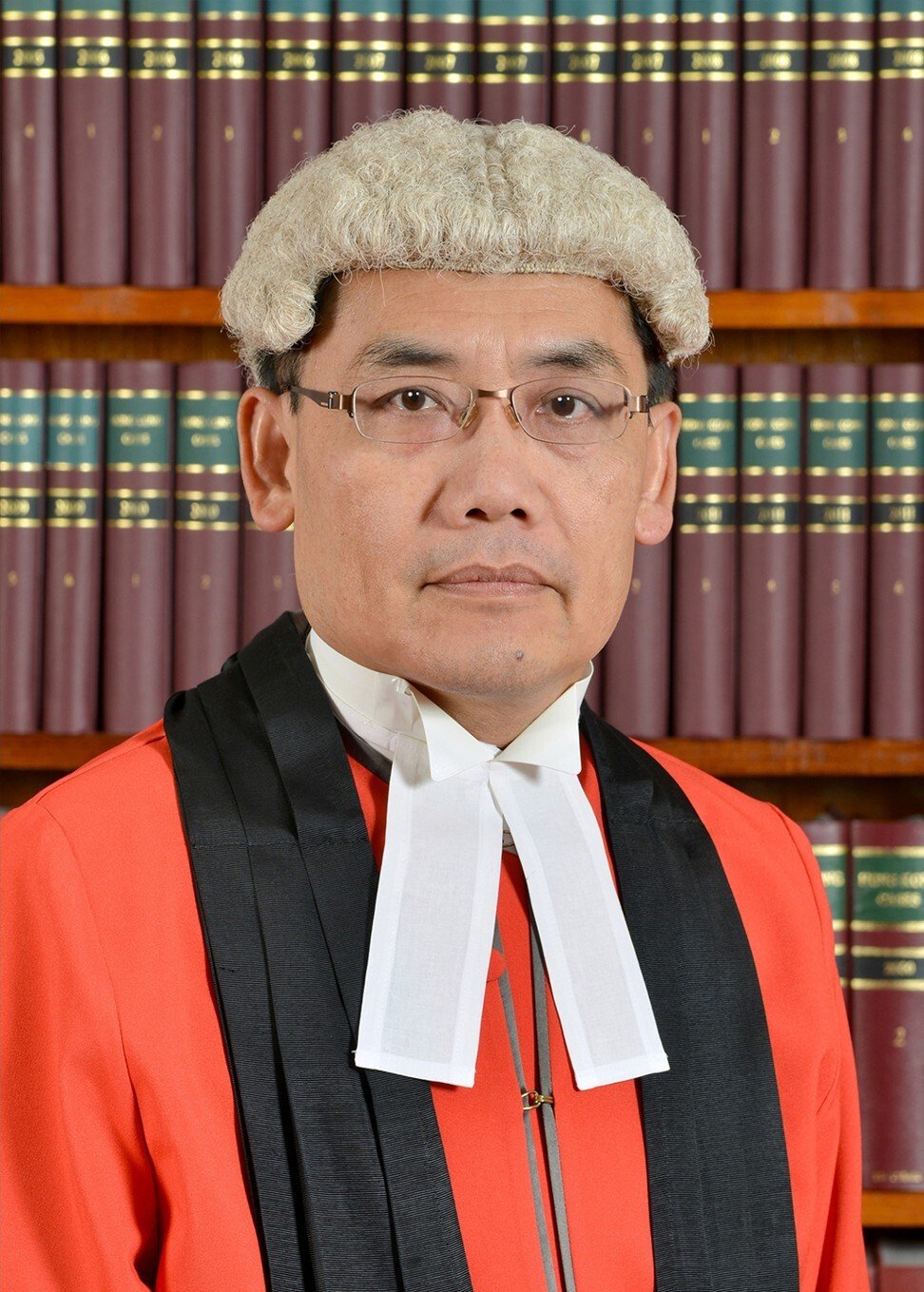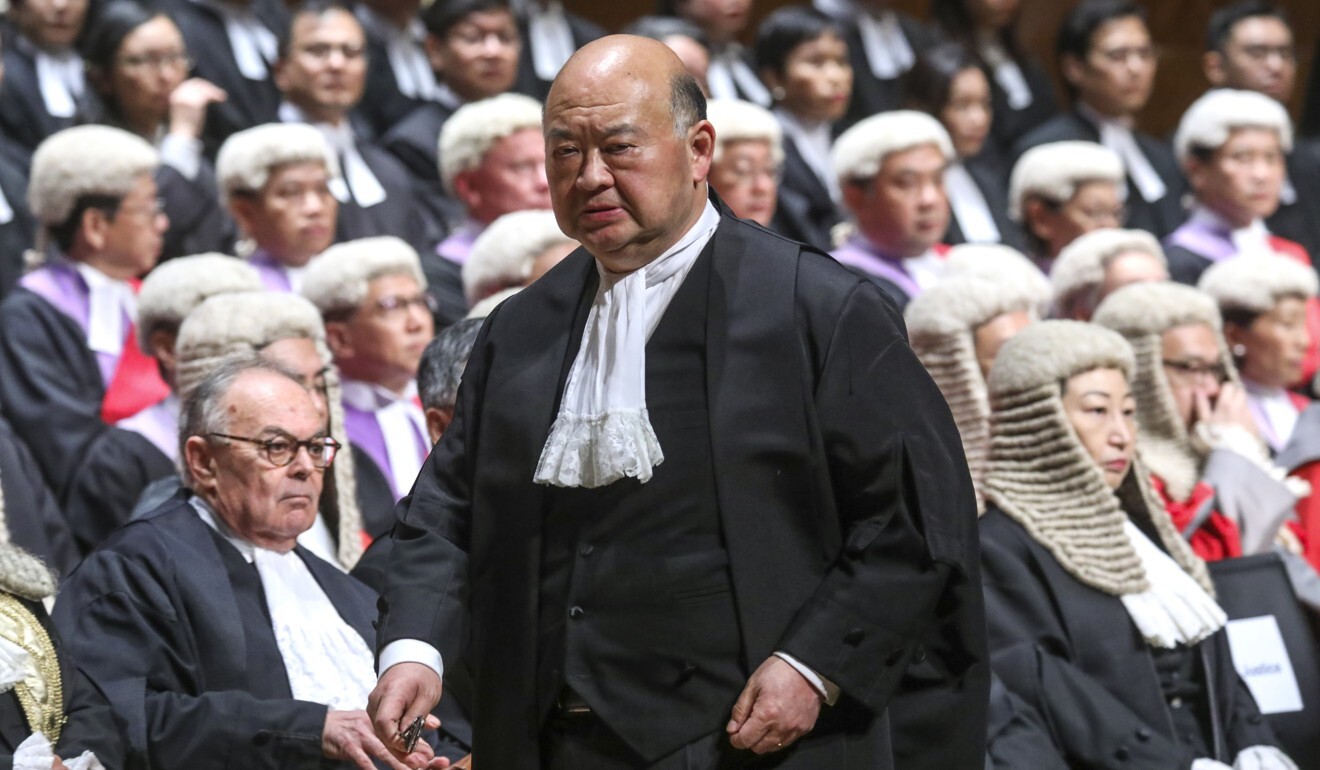
Hong Kong protests: judge who signed petition against extradition bill barred from handling related cases
- High Court’s Patrick Li is second judge be disqualified from such hearings under judiciary bid to avoid perception of bias
- Chief justice earlier censured another judge for expressing sympathy for a violent offender who attacked people at a protest site
The High Court’s Patrick Li Hon-leung would not hear any cases connected with issues arising from the petition he backed, the city’s judiciary revealed on Thursday.
Citing the Guide to Judicial Conduct, a judiciary spokesman said: “A particular judge is disqualified from sitting if the circumstances are such as would lead a reasonable, fair-minded and well-informed observer to conclude that there is a real possibility that the judge would be biased.

“In general, the above fundamental principles apply to the listing of cases at various levels of courts. In accordance with the above principles, no case concerning the issues arising from the petition signed by [Li] has been listed before him to avoid any apparent bias.”
The judiciary said Li had not handled any cases in relation to the petition since then, apart from an application for habeas corpus on October 1 last year, when he was the duty judge on a roster handling urgent cases on the public holiday.
The spokesman for the judiciary said the applicant’s legal representatives made the bid directly to Li in accordance with the established mechanism and practice for urgent applications.
“During the hearing, the representative from the Department of Justice did not apply for recuse of Li or object to the application,” the spokesman said.
The judiciary later confirmed that a judge’s name was among the nearly 3,000 on a petition denouncing the proposal. It was then reported that Li was given a warning by the chief justice.

Kwok described the offender as “an involuntary sacrifice and a bloodstained victim”.
Chief Justice Geoffrey Ma Tao-li asked him to refrain from airing views on controversial issues and decided that, for the time being, he should not deal with any cases with a similar political context, saying judges and judicial officers must not be biased or reasonably deemed to be biased.
Ma’s criticism of Kwok led some pro-government supporters to accuse the chief justice of applying double standards for not taking action against those judges they considered had sympathised with protesters.
Legislator Holden Chow Ho-ding, of the pro-Beijing Democratic Alliance for the Betterment and Progress of Hong Kong, called Li’s case a “belated response”.
“Late is better than never. At least, it shows that the judiciary is applying the same set of standards to deal with different judges over similarly controversial acts,” Chow said.
Hong Kong has been gripped by social unrest triggered last June by the now-abandoned extradition bill, and later morphed into a wider anti-government movement.
The judiciary has frequently found itself under fire from both sides of the political divide for its rulings on cases relating to the protests, with judges often the targets.
Some pro-government supporters have accused the judiciary of dragging its feet in meting out punishment to protesters, while anti-government radicals have painted graffiti on the outer wall of the High Court, insulting a judge who jailed three over the Mong Kok riot in 2016.
Meanwhile, a Security Bureau task force held its first meeting on Thursday to follow up on the 52 recommendations put forward by the Independent Police Complaints Council (IPCC) in a review of the force’s handling of the anti-government protests.
The task force agreed to set up five subgroups to look at the recommendations.
Security minister John Lee Ka-chiu, who presided over the meeting, said it would regularly submit a progress report to the chief executive. The first was planned for August, followed by quarterly reports.
Help us understand what you are interested in so that we can improve SCMP and provide a better experience for you. We would like to invite you to take this five-minute survey on how you engage with SCMP and the news.

